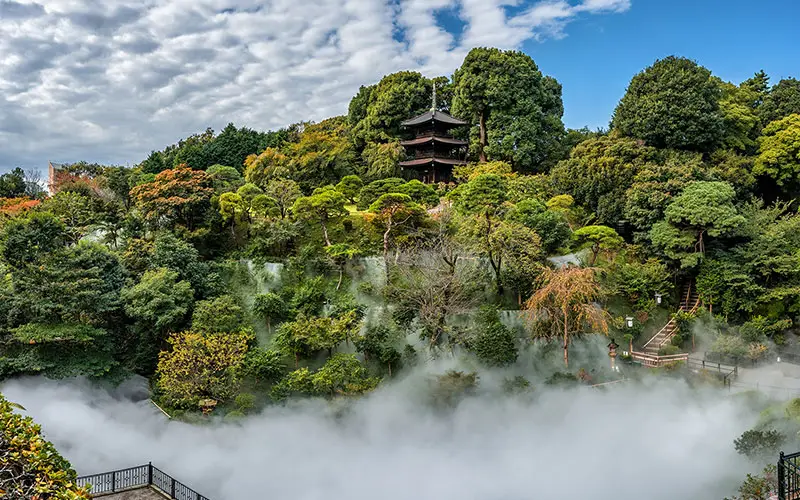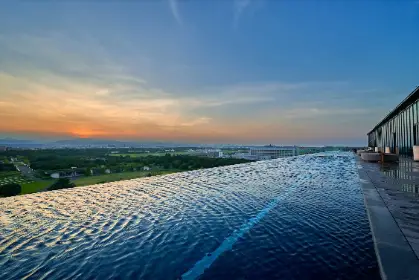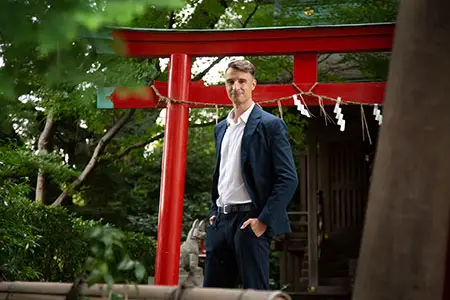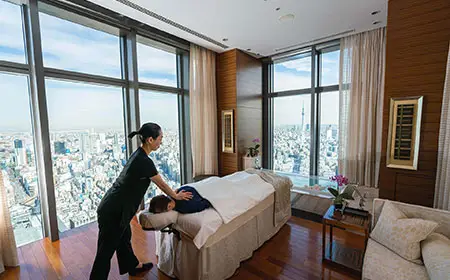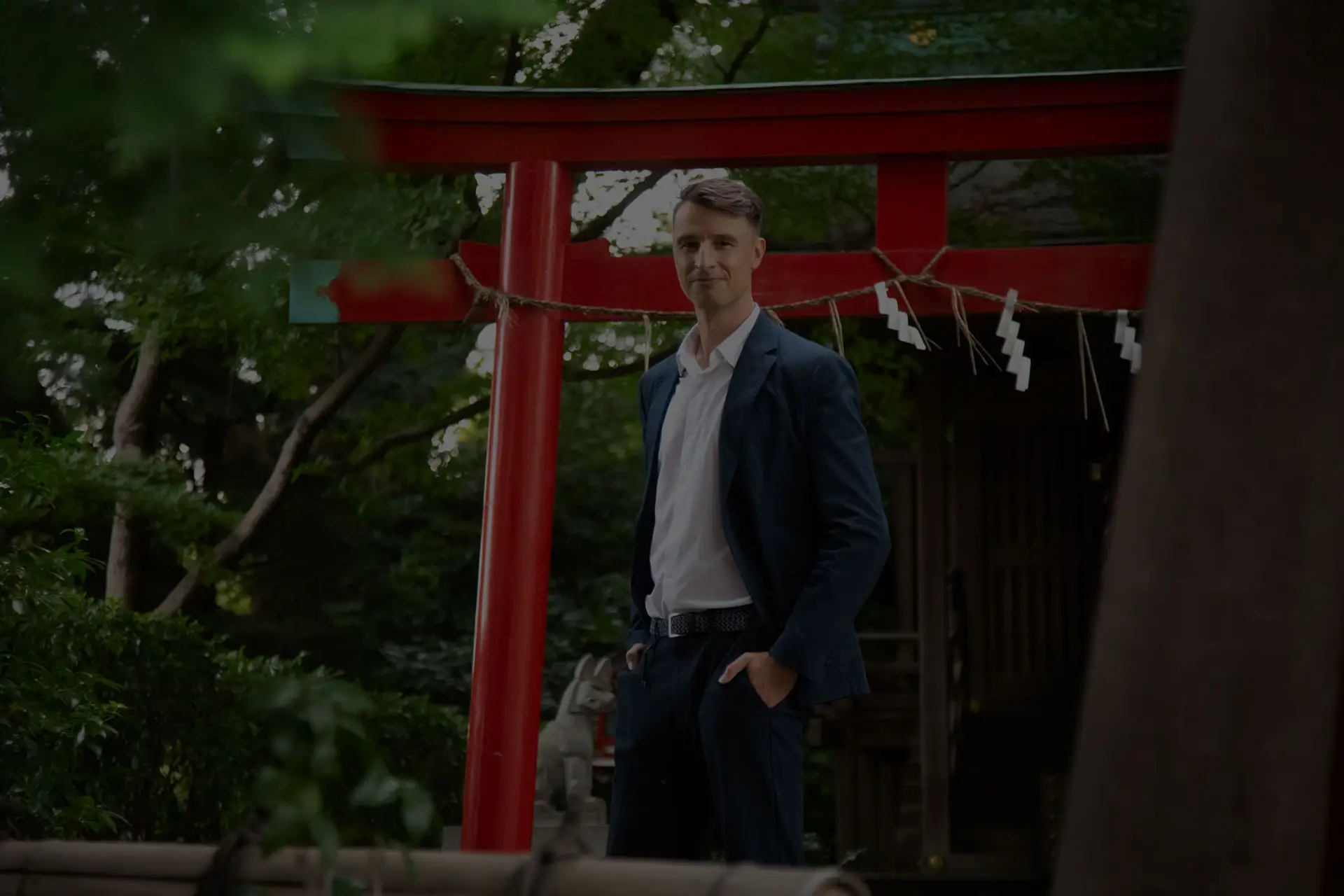
CONNECTING WITH TOKYO'S NEW LUXURY
During his visit for Connections Luxury Tokyo, executive and industry expert Greg Reeves talks about high-end travel trends and Tokyo's unique appeal in the post-pandemic era.

Greg Reeves & Connections
The managing director of Connections Luxury, Reeves is an expert on the world of luxury tourism, who's passionate about connecting industry leaders with one another and driving value to clients. Connections is an invitation-only global community of senior industry executives, which specializes in showcasing leading suppliers and high-end products to handpicked individuals from their 2,000 member agencies worldwide.
The first post-pandemic B2B luxury travel event in Tokyo, Connections Luxury Tokyo is all about showcasing high-end products in Tokyo to an international audience.
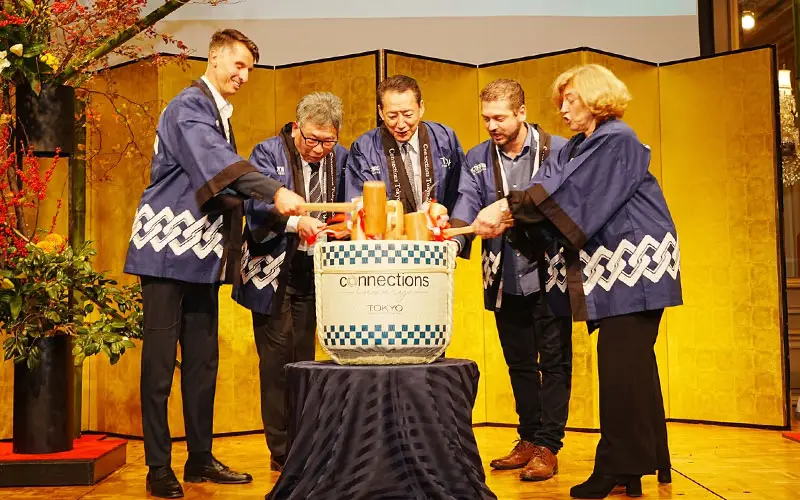
The Connections Luxury Experience
To illustrate, Reeves recounts his visit to a sumo stable for their morning training: "I had the opportunity to see sumo wrestling, not in a commercial environment but where the training actually took place. I remember it being really cold, and the condensation from the wrestlers' bodies and their mouths going up into the air. And they were warming up by hitting a wooden pole which was holding up the roof, and vibrating the whole place, and for me that was one of the most raw and exciting experiences I could have hoped for."
And the participants at Connections experienced similar. From sushi-making with a master, "very, very exciting," to the Imperial Palace, "a must-visit for anyone," to the New York Bar (from Lost in Translation) at Park Hyatt, "it's a must for movie lovers, food connoisseurs, or those who simply want an unrivalled view of the Tokyo skyline."
He added "I think luxury tourists in the past spent a lot of time in hotels. And the value of the experience was silver service or the size of their room. Now it's about understanding and having a sense of place when you arrive." And "The hotels here are second-to-none, and we could talk about them more. But I think what's important, what Tokyo's doing a good job on, is bringing to the forefront the experiences that can be enjoyed here."
Reeves also talked about some of the newer attractions he was excited to showcase at Connections, what with travel being difficult in recent years. For sports enthusiasts, the new Japan National Stadium designed by Kengo Kuma is amazing - and offers some exclusive and unforgettable sporting experiences. While serenity can be found at the Forest Terrace Meiji Jingu, with its restaurants and event spaces hidden in the green tranquil parkland. "I was blown away by the tranquility. You can hear the birds singing, and you don't feel like you're in a metropolitan city."
Outdoors and Wellness
Forest Terrace is one of many places to decompress in Tokyo. Of post-pandemic travel trends, Reeves said "I think the narrative is changing very much toward sustainability, and adventure, and wellness. All of those are synonymous with Tokyo and Japan, as a culture and as a destination."
"This is the gateway city to the country. People could come just to Tokyo - there's plenty to do - but most use it as a gateway, a few days at the beginning or end of the trip." And those starting or finishing their trip in the capital could easily relax into a longer stay, with so much that's therapeutic on offer.
The Aman Tokyo, a world-leading wellness resort, immediately springs to mind. "Having that in the city is truly phenomenal, to be honest. There aren't many cities that have Aman properties, they're normally very hard to reach. I think being able to step off the plane and have that, that's pretty cool."
The Digital Detox plans at the Mandarin Oriental came up as well. "I think the world has realized the damage of being glued to tech. It's important when you go on holiday to be able to switch off and set boundaries, and sometimes you need to be forced." Workaholics and high performers can perhaps get the most out of this, whether a short spa session with one's phone locked away, or a longer wellness practice to help recenter and shift one's perception of what's important.
Beyond city-center sanctuaries, we talked about how easy it is to nip out of Tokyo with Japan's excellent infrastructure, and about the nature in Tokyo itself: "I haven't visited the Izu Islands, but a string of volcanic islands which are a 25-minute flight from Chofu Airport or an hour and 45 minutes' boat ride from Takeshiba Pier is an unfair competitive advantage for most metropolitan cities. You can go scuba diving, hiking and camping, canyoning, caving, and then be back in time to enjoy dinner at the Grand Hyatt if you wanted to, and I think that is extremely unique."
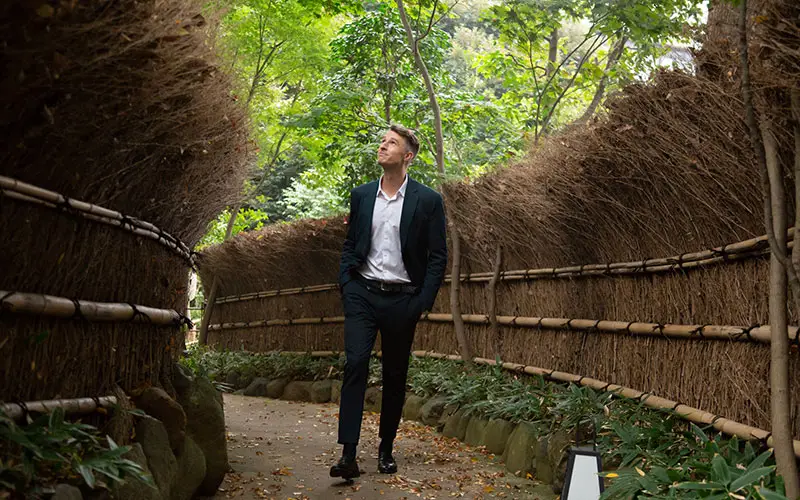
Sustainable Travel
Speaking of flights, we asked, "how important is sustainability to the luxury traveler?" Reeves tells us that a survey by Altiant revealed 83% of global travelers say sustainability is important, but at the same time, few people want to compromise on quality. Sustainability was a central theme at Connections. Energy-saving tactics, locally sourced food, and electric vehicle transfers were just a few of the topics touched on there.
Is the narrative changing? "I'd say that Tokyo is one of the most progressive destinations in terms of actually taking it seriously."
One positive shift, which some hotels are responding to, is that the new generation of luxury travelers doesn't want everything all the time. They want to be selective, to have the right thing at the right time, rather than a room full of single-use items just in case.
Flying is a tricky one, but people can at least be selective about their journey and make it as meaningful as possible. You can stay for longer, not hop to Tokyo for the weekend just because you can. You can roam the country by train, take a ferry instead of a local flight.
Sustainable or meat-free dining is a challenge too, what with hotel buffets, and foods like wagyu and sushi so central to the experience. Reeves says, "one thing we want to do here - the reason we're educating agencies - is we don't want people glued to the luxury infrastructure. It's easy as a travel agent to say 'ok, I know that such-and-such a hotel is reputable,' and then to use the restaurants there because you know that you can rely on them."
"The point is to open their eyes to the fact that, actually, maybe they should be using more of the local offerings. And, in fact, travelers post-pandemic are craving that. They don't want to just be in the four walls, the safety blanket of the hotel. They want to get out and experience things. So, I think also the objective here is to showcase, you know, what's out there - get under the surface of the destination."
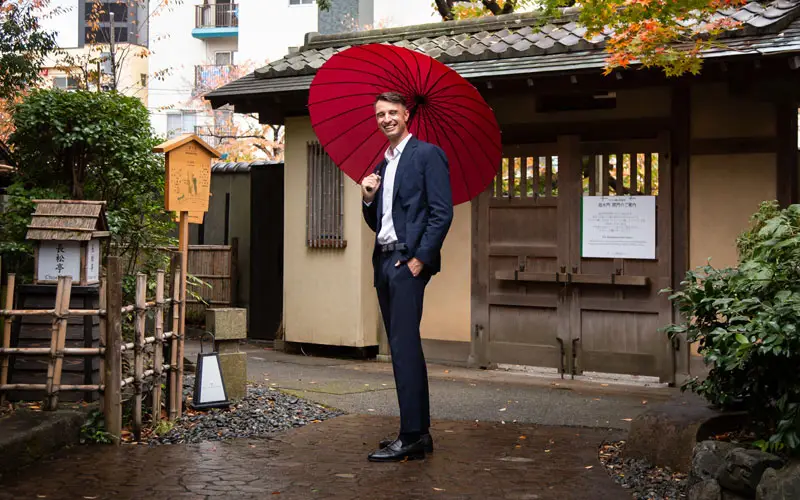
Hotel Chinzanso Tokyo
This interview, and the opening of Connections Luxury Tokyo 2022, were held at Hotel Chinzanso Tokyo. The luxurious hotel is known for its serene 13-acre Japanese gardens in the middle of the city, replete with a three-story pagoda and shrine, just as much as its impeccable service and elegant interior. The incredible "sea of clouds" effect recreated in these gardens is a phenomenon normally seen only high in the mountains under certain conditions.
Hotel Chinzanso Tokyo
